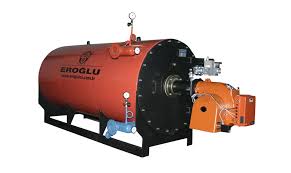
Dec . 26, 2024 11:53 Back to list
boiler settings for hot water
Understanding Boiler Settings for Hot Water
When it comes to home heating systems, boilers play a crucial role, especially in providing hot water for various domestic purposes. Properly setting up a boiler for hot water not only enhances efficiency but also ensures safety and comfort for residents. This article delves into the essential boiler settings for hot water, helping homeowners make informed decisions.
The Basics of Boiler Operations
A boiler is a closed vessel where water is heated, typically using gas, oil, or electricity. The heated water can then be used for domestic hot water needs or for heating spaces within a building. Key components of a boiler include the burner, heat exchanger, and controls, all of which must be correctly configured to ensure optimal performance.
Setting the Temperature
One of the most critical settings on a boiler is the temperature of the hot water. The recommended temperature for domestic hot water delivery typically ranges from 120°F to 140°F (49°C to 60°C). Setting the temperature too low can result in insufficient hot water for tasks such as bathing or washing dishes, while a temperature that is too high increases the risk of scalding and can contribute to increased energy bills.
Pressure Settings
Another important aspect of boiler settings is water pressure. Most residential boilers operate efficiently at a pressure between 1 and 2 bars (14.5 to 29 psi). Maintaining the correct pressure is vital, as low pressure may result in inadequate hot water supply, while excessive pressure can lead to system failures or leaks. Homeowners should regularly check their pressure gauge and adjust as necessary, ensuring the boiler operates within the recommended range.
Safety Features
boiler settings for hot water

Modern boilers are equipped with several safety features designed to protect both the system and its users. These include pressure relief valves, temperature sensors, and flow switches. It is essential to familiarize oneself with these features and ensure they are functioning correctly. Regular maintenance and inspections can help identify any issues before they lead to more significant problems.
Boiler Type Considerations
Different types of boilers, such as conventional, combination, and system boilers, may have unique settings and requirements. For instance, combination boilers heat water on demand, meaning they don’t store hot water like conventional systems. This can influence how you set the temperature and manage water flow. It's important to consult the manufacturer's guidelines specific to your boiler model to optimize settings for hot water delivery.
Energy Efficiency and Savings
Adjusting your boiler settings not only ensures comfort but can also lead to significant energy savings. Lowering the water temperature to 120°F is often sufficient for most household needs and can reduce energy expenditure. Additionally, installing a programmable thermostat or using timers can help optimize when hot water is available—ensuring it's used efficiently and only when needed.
Regular Maintenance
Lastly, regular maintenance of your boiler is crucial. This includes checking for leaks, ensuring the flue is unobstructed, and inspecting electrical components. Additionally, flushing the system periodically helps remove any sediment buildup, which can impair performance and efficiency.
Conclusion
Setting a boiler for hot water is an essential aspect of managing a comfortable and efficient home. By understanding the key settings—temperature, pressure, and safety features—homeowners can ensure their boiler operates effectively, providing reliable hot water while maximizing energy savings. Investing time in understanding and maintaining your boiler will pay off in terms of both comfort and efficiency in the long run. Remember that when in doubt, it is always best to consult with a qualified technician who can provide personalized advice based on your system and needs.
-
High-Efficiency Commercial Oil Fired Steam Boiler for Industry
NewsJul.30,2025
-
High-Efficiency Biomass Fired Thermal Oil Boiler Solutions
NewsJul.30,2025
-
High Efficiency Gas Fired Thermal Oil Boiler for Industrial Heating
NewsJul.29,2025
-
High-Efficiency Gas Fired Hot Water Boiler for Sale – Reliable & Affordable
NewsJul.29,2025
-
High Efficiency Biomass Fired Hot Water Boiler for Industrial and Commercial Use
NewsJul.29,2025
-
High-Efficiency Biomass Fired Hot Water Boiler for Industrial Use
NewsJul.28,2025
Related PRODUCTS






















